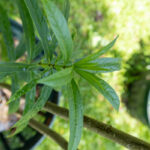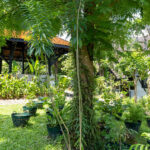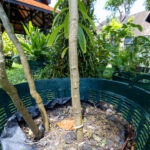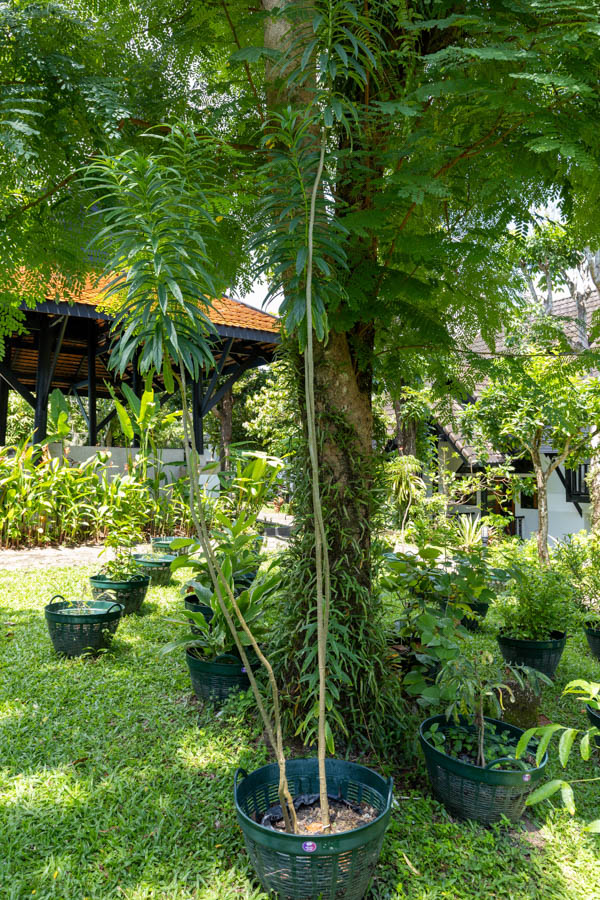พญาสัตบรรณ (Phaya Sataban)
Family: Apocynaceae
Alstonia scholaris, known in Thai as พญาสัตบรรณ (Phaya Sataban) and commonly called the Devil Tree or Blackboard Tree, is a tall evergreen native to South and Southeast Asia. It is considered both sacred and medicinal in Thai culture. The tree’s bark and leaves are used in traditional medicine to treat fevers, coughs, and respiratory ailments.
Botanical Characteristics
This species grows up to 30 meters tall with a straight, pale-gray trunk that exudes a milky latex when cut. The leaves are simple, glossy, and arranged in whorls of 4–8 around the stem, narrow and leathery in texture. Clusters of small, white, fragrant flowers bloom near the branch tips, followed by slender pods containing silky-haired seeds. It thrives in tropical lowlands and well-drained soils.
Use in Thai Traditional Medicine
In Thai herbal practice, the bark of พญาสัตบรรณ is used as a bitter tonic to reduce fever and support respiratory health. Decoctions of the bark or leaves are administered for chronic cough, bronchitis, and throat inflammation. The latex, though toxic in large doses, has been used externally for wound care and skin infections. In some regions, the bark is also used as a natural remedy for malaria and digestive disorders.
Cultural & Spiritual Significance
The Devil Tree holds symbolic meaning in Thai and Buddhist traditions, often planted near temples as a guardian tree. Its evening-blooming flowers are associated with calmness and reflection, believed to purify the air and ward off negative energy.
Cultivation Notes
Alstonia scholaris prefers full sun and moist, well-drained soil. It grows rapidly and is drought-tolerant once established. The tree produces a strong, straight trunk suitable for reforestation and shade planting. In the KBE Thai Medicinal Herb Garden, it represents the connection between medicinal practice and spiritual heritage.
Historical Context
Used across Ayurveda, Chinese, and Thai systems, Alstonia scholaris has long been valued as a febrifuge and respiratory aid. Its Latin name “scholaris” refers to its historical use in making school blackboards from its smooth bark.
Disclaimer: This information is provided for educational and historical purposes only. It is not intended as medical advice. Always consult a qualified healthcare professional before using any herbal preparation.




